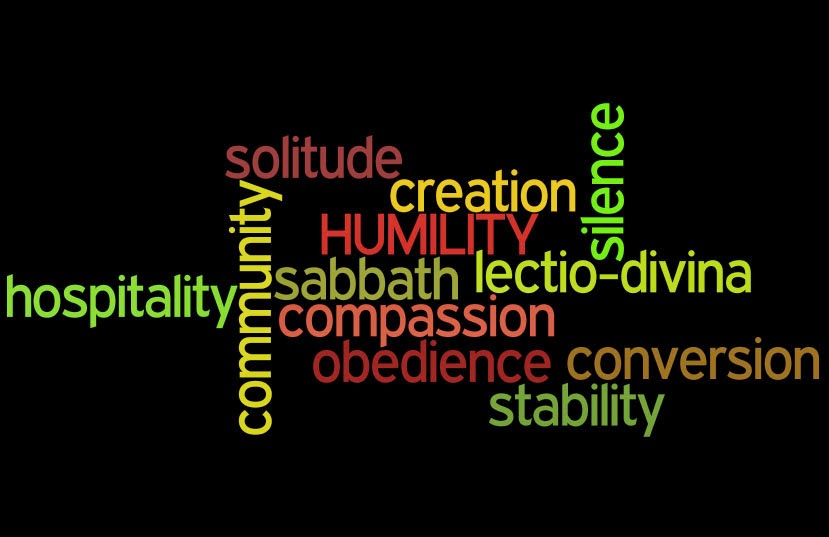All guests who present themselves are to be welcomed as Christ, for He Himself will say: I was a stranger and you welcomed me. (Matt 25:35; The Rule of Benedict 53:1)
Much of our entertaining today is focused on impressing others. Fearfully, we work ourselves into a frenzy cleaning, decorating, buying this and that, and creating extravagant recipes, all in the hopes of being approved by our guests.
…only those who are truly at home in themselves can offer genuine hospitality, which is not controlling or manipulative, but welcomes us as we are. ~ Kathleen Norris*
Benedictine hospitality has two simple goals:
Did they see Christ in me? Did I see Christ in them?
- Benedictine hospitality is about others, not us.
- Benedictine hospitality calls for balance and self-care.
- Benedictine hospitality includes the forgotten and poor in our world.
- Benedictine hospitality means caring for the earth God has given us.
Sometimes hospitality shows up at inconvenient times. Without hostility, we must see the interruption as a call to serve others and our world lovingly. This is our chance to practice obedience in responding to God’s call.
Welcome one another just as Christ has welcomed you, for the glory of God. ~ Rom 15:7
Hospitality is an incredible gift that we can give one another. It all begins when we can be truly present to another person. When we are present, focusing on the person before us or acknowledging the need of people who live far from us, we become channels for the Spirit of Christ. ~ Jane Tomaine**
When we are struggling with our own problems and drowning in our own negativity one of the best things we can do is take our mind off our self. We need to lean back and make a space for hospitality. By keeping our eyes, ears and hearts open we will be ready for what God leads us to do.
The Benedictine Handbook Liturgical Press 2003*
Benedict’s Way: An Ancient Monks Insights for a Balanced Life by Lonni Pratt and Fr. Daniel Homan
How to be a Monastic and Not Leave Your Day Job: An Invitation to Oblate Life by Benet Tvedten
Monk Habits for Everyday People: Benedictine Spirituality for Protestants by Dennis Okholm
St. Benedict’s Toolbox: The Nuts and Bolts of Everyday Benedictine Living by Jane Tomaine**
Seeking God: The Way of St. Benedict by Esther de Waal
Image credit: yencha / 123RF Stock Photo









